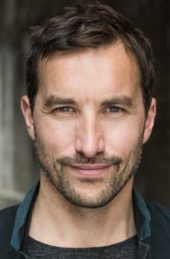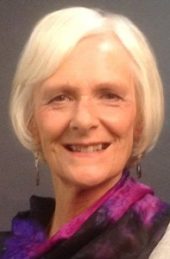Adam Staten, what first attracted you to the period or periods you work in?
My first novel, Steadfast, was inspired by my experiences serving as a doctor on the front line in Afghanistan. I suppose the first germ of the story took hold whilst I was out there, but it wasn’t really until the final chaotic departure of British troops in 2021, when so much of what had been achieved was overturned so quickly, that I set about writing it in earnest. By that time, it felt to me that the conflict in Afghanistan was becoming a bit of a forgotten war and I wanted to write something to remind people of the enormous sacrifices our soldiers had made out there.
Currently, I’m writing about the Anglo-Saxon period and the Norman Conquest. I find the culture and society of that time fascinating both for the differences they have from today and also the many surprising echoes of that time that influence the way we still live. It also fascinates me how huge geopolitical events frequently took place due to the ambitions, desires, or grudges of individual people.
Can you tell us a little about how you researched your first novel, Steadfast – or was it solely based on your experiences in Afghanistan
It was mainly based on my experiences out there. Luckily, I had kept a journal so, although I wrote the story years after coming home, I still had access to my own fresh impressions of what it was like to be on the front line there and also access to a lot of detail about daily life in a patrol base that I think would have been difficult to discover anywhere else.
How similar would you say you are to the principle character of Steadfast, Alec Collard?
I would say that I’m very different from the principle character, something my wife would be pleased about! Much of the story is about how his experiences of serving alongside an infantry unit changed his outlook on life. Hopefully, I’m a bit more like the end product than Alec at the start of the story.
The common phrase is that history is written by the victors. Do you think this is true?
I think it is less true as we move through the ages. Certainly, when reading about something like the Norman conquest, you have to be constantly aware that much of our source material was written for a victorious, post-conquest audience and I think the same is true of many ancient sources such as the accounts of Roman victories. But I think in more recent eras, where more evidence survives, good historians are able to unearth evidence that gives us different perspectives on major historical events. Today, so much is documented in real time that future historians will hopefully be able to derive a much more balanced view of how and why things happened.
What do you think writers get wrong about the war in Afghanistan, if indeed they do?
For me, the main thing is that the war is not written about enough. Our most recent involvement in Afghanistan lasted 20 years, many of which were hard fought, bloody years of conflict but there aren’t very many books out there about it. Not only is this a shame because it risks us forgetting the sacrifices that so many of our soldiers made, but the country of Afghanistan and that conflict are both incredibly interesting subjects.
Are there any historians or fiction authors who helped shaped your career? Similarly, can you recommend three books which budding writers should read?
I love the writing of William Dalrymple, in particular what he has written about the British forays into Afghanistan in the 19th century which is when many of the seeds were sown for what is still happening in the country today. Return of a King is a great book for anybody interested in that period, or anyone who wants to see how to write history in a compelling and absorbing way. In terms of fiction, I would have to say that Bernard Cornwell is my biggest influence, and I would be hard pushed to recommend anything more highly than The Last Kingdom. I also love Conn Iggulden’s writing and reading his Emperor series as a student is probably what got me into historical fiction.
If you could meet any figure from history, who would it be and why? Also, if you could witness any event throughout history, what would it be?
Given the recent research I have been doing, I have to say that I would be fascinated to meet William the Conqueror. I’m not sure he’d be a great guy to share a pint with but, even from a distance of a thousand years, you get a sense that his force of character and charisma must have been extraordinary. Picking one event is really tricky but I guess it would be interesting to be present at a truly pivotal moment in history and I suppose the Battle of Hastings is a good example of that.
If you could add any period or subject to the history curriculum, what would it be?
I think staples of the historical curriculum like the Anglo-Saxons, the Tudors and the World Wars are good ways to get kids hooked on history, but perhaps it would be good for our children to learn more about the British Empire. I know this can feel like quite an uncomfortable topic now, but I think understanding what happened with the empire, and why and how it happened, would help our children understand so much of the way the world is today.
If you could give a piece of advice to your younger self, either as a student or when you first started out as a writer, what would it be?
Get on with it sooner. I wish I’d committed more time to learning how to write a story years ago as it’s such a source of pleasure for me now.
Can you tell us a little bit about the project you are currently working on?
My current project is a trilogy about an Anglo-Saxon warrior called Cadman. His story starts in the years before the Norman Conquest when he is a young housecarl, hungry for glory, who catches the eye of Harold Godwinson and ends up serving in his household so that he is there, beside Harold, at the Battle of Hastings. There must have been many young men like Cadman whose world was turned upside down by the seismic events of 1066. The books will follow his adventures up to and after the Norman Conquest, fighting on battlefields across Europe and further afield in his quest for honour and fame.
Adam Staten is the author of Steadfast, set in Afghanistan.






